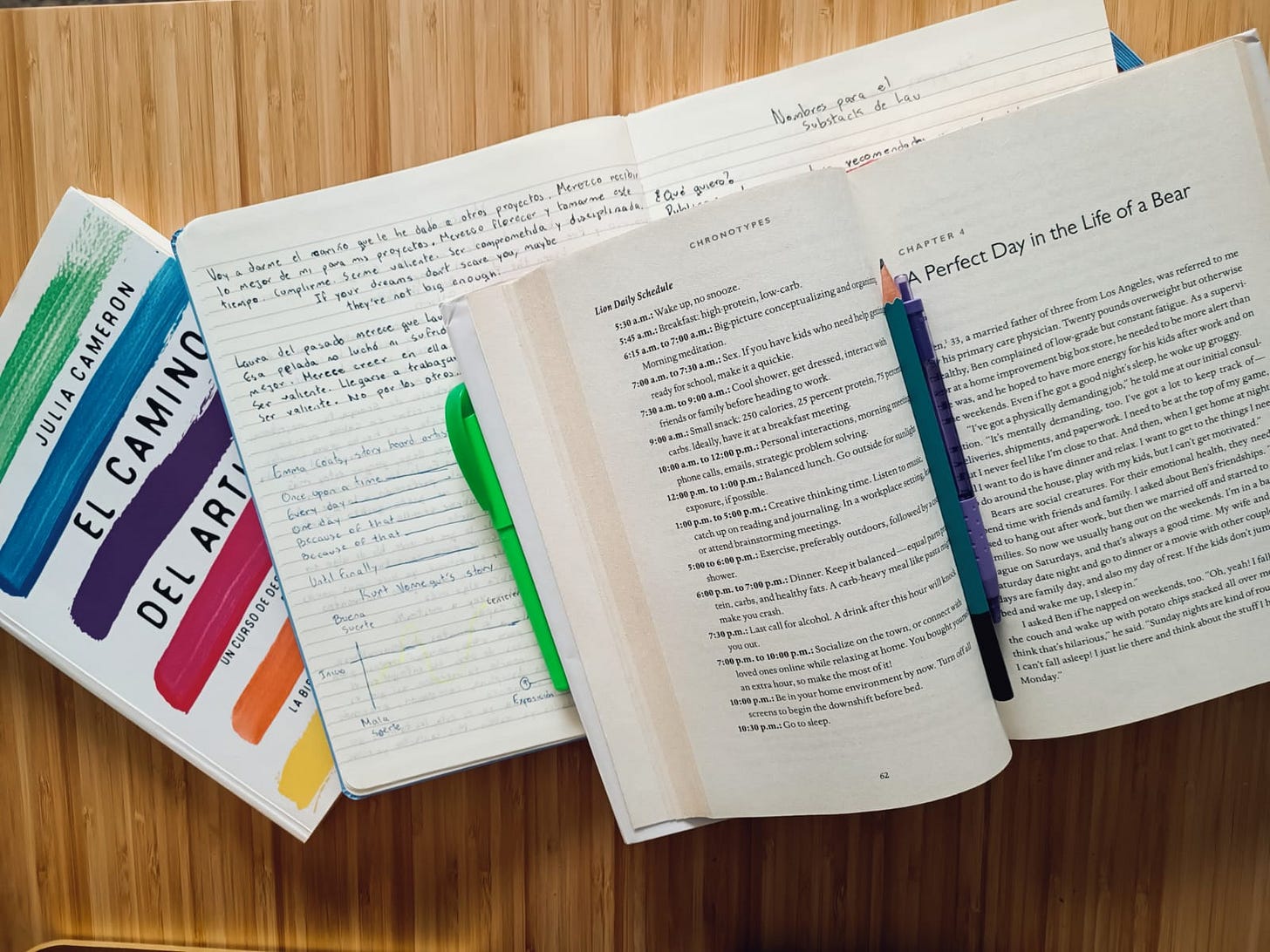How to find the right time for everything?
The success of your to-do list depends on when you choose to do them.
Thanks for reading Escribir en voz alta.
In my first delivery, I told you that I've been thinking a lot about the relationship between creativity and productivity. I think creativity is one of my superpowers. When I'm "in the zone" I'm flowing with ideas, connecting people, thinking of actions, scaling them, creating and creating and creating...like tu…
Continúa leyendo con una prueba gratuita de 7 días
Suscríbete a Escribir en Voz Alta, por Laura Ubaté para seguir leyendo este post y obtener 7 días de acceso gratis al archivo completo de posts.


